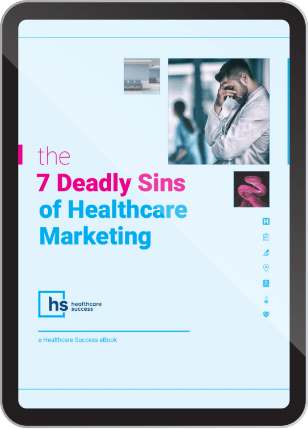How Millennial Patients Are Changing The Way You Do Business
Here's why you need a guide to Millennials. Not long ago, it was the Baby Boomers that dominated the healthcare demographic landscape—one of the top audience targets of opportunity. The post-war crowd still represents a substantial slice of the American population. But boomer-babies are no longer the largest cohort.
Millennials (age 18-34) are now the largest generation group (75 million), and one of the most sought-after consumer crowd. But be aware, Millennials are nothing like quiet and compliant Baby Boomers. In healthcare, Millennials have higher expectations and are more demanding than previous generations.
Winning new patients often requires a different marketing approach. Here are some of the significant distinctions that you need to know to reach and retain this target audience.
Digital marketing is a primary gateway. More than any other group, Millennials own, use and rely on the digital devices, mobile applications and the Internet throughout the healthcare continuum.
They rely on Internet information. Millennials look online for health information, to make and manage appointments, to pay bills and to communicate with the office.
Patient reviews are a significant criterion in physician selection. In choosing a doctor, Millennials preferences are guided by opinions posted on government sites, reports from friends and family, and sites such as Healthgrades, Consumer Reports and Yelp.
Millennials expect doctors to value their time. Convenience is the new currency. A research report by the Health Industry Distributors Association (HIDA) reveals “the leading cause of provider dissatisfaction among Millennials is being unable to get laboratory results during the same visit.”
Millennials have high expectations and demand more from their providers. They expect fast and efficient care, according to HIDA research. Facilities should be modern, comfortable and have up-to-date equipment and technology. And while they’re waiting, they expect to find comfortable chairs, snacks and beverages.
You probably have just one shot at connecting. This is a generation that has grown up expecting and finding nearly immediate answers online. They are likely to form strong opinions quickly. And, good or bad, they are prepared to share their opinions quickly and online.
Millennials want convenience more than an ongoing provider relationship. Almost half of Millennial respondents in a Salesforce survey said they had no personal relationship with their PCP.
The cost of healthcare is important to Millennials. The FAIR Health survey indicates that this group is most likely to price check, comparison shop, and to ask about costs in advance of services.
The Millennial demographic group is an attractive business target, but one that is significantly different from what most providers and hospitals have reached in the past. This is a group that has higher expectations and is more critical than other generations. And successfully marketing to this group—reaching and retaining them as new patients—requires a more accommodating, patient centered approach.
See how Healthcare Success transforms doctor marketing by generating exposure and increasing qualified leads!








